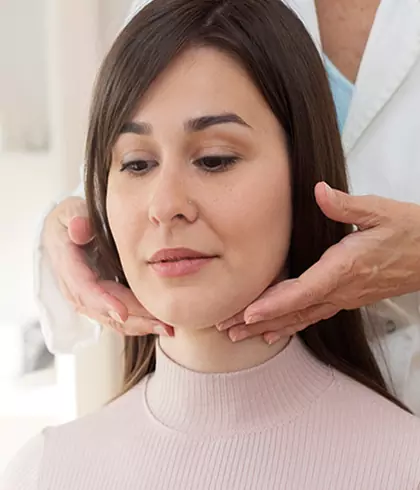

10 Signs of Thyroid Problems in Women
Do you know what your thyroid does? Do you know where it is in your body? For many people, the location and purpose of this important little gland, which acts like the throttle for almost all of your body systems, is a mystery. Thyroid disorder can wreak havoc on most of your major internal systems - upsetting your digestive system, interfering with your cardiovascular system, and throwing off your metabolism. Thyroid hormones can affect the function of everything from your heart and lungs to your emotional well-being.
What is Thyroid and Thyroid Disorder?
Your thyroid is an endocrine gland, and the hormones that it produces, thyroxine and triiodothyronine, often referred to collectively as thyroid hormone, help control the pace of all of your physiological body functions. When your thyroid function becomes underactive it is called hypothyroid (Hypothyroidism) and things in your body can slow down too much. When your thyroid function becomes overactive it is called hyperthyroid (Hyperthyroidism) thyroid hormone, some of your body systems overdrive.
Either situation - too much or too little thyroid hormone- hurts your health. Below mentioned are hypothyroid symptoms or hyperthyroid symptoms:
1. Fatigue.
In hypothyroidism, you may feel exhausted when you wake up, even after 8-10 hours of sleep. In hyperthyroidism, you may have night-time sleeplessness. This may make you feel exhausted during the day.
2. Weight changes.
Difficulty losing weight can be a sign of hypothyroidism, even when you eat the same amount of food as usual. Unexplained weight loss can be a sign hyperthyroidism.
3. Depression and anxiety.
Hypothyroidism is most typically associated with depression, while hyperthyroidism is frequently associated with anxiety, or panic attacks. Depression may also be a sign of an undiagnosed thyroid disorder.
Related: How to treat depression through homeopathy
4. Cholesterol.
High cholesterol can be a sign of undiagnosed hypothyroidism. Extremely low cholesterol levels could be a sign of hyperthyroidism.
5. Family history.
If you have a family history of thyroid problems, you are at a higher risk of having a thyroid problem.
6. Menstrual or fertility problems.
More frequent, heavy or painful periods are frequently associated with hypothyroidism. Short, light or infrequent menstruation may be associated with hyperthyroidism. Infertility may sometimes be a sign of undiagnosed thyroid condition.
7. Bowel problems.
Severe or chronic (long- term) constipation is frequently associated with hypothyroidism. Diarrhea or irritable bowel syndrome (IBS) may be a sign of hyperthyroidism.
8. Hair and skin changes.
Brittle, coarse skin and dry hair, which breaks off and falls easily, may be a sign of hypothyroidism. There may be severe hair loss with fragile, thin skin in hyperthyroidism.
9. Neck.
A swelling in the neck, discomfort with neckties, a hoarse voice, or a visibly puffy thyroid gland can be a sign of thyroid.
10. Muscle, joint pains and carpal tunnel syndrome.
Aches and pains in your muscles and joints, weakness in the arms and a tendency to develop carpal tunnel syndrome in the wrist (numbness or tingling sensation), or nerve pain in the legs and pain in the feet may be likely symptoms of an undiagnosed thyroid disorder.
How to get rid of thyroid disorder? Click to get the solution – Homeopathy treatment for thyroid
Key Takeaways
- The thyroid is a gland that controls many body systems by producing hormones.
- Thyroid disorders can cause fatigue, with hypothyroidism leading to tiredness and hyperthyroidism causing sleeplessness.
- Weight changes, like difficulty losing weight or unexpected weight loss, can indicate thyroid issues.
- Mood changes such as depression or anxiety may be linked to thyroid imbalances.
- Thyroid problems can also lead to symptoms like menstrual issues, bowel problems, and changes in hair and skin.

